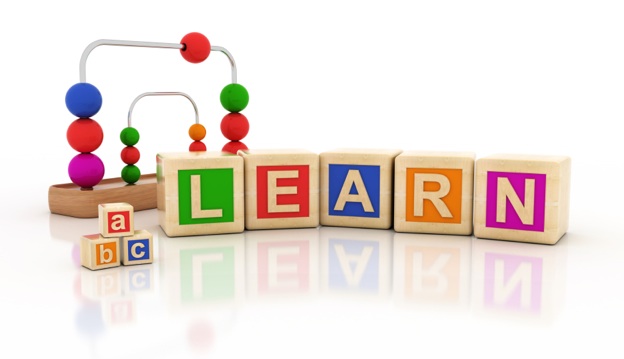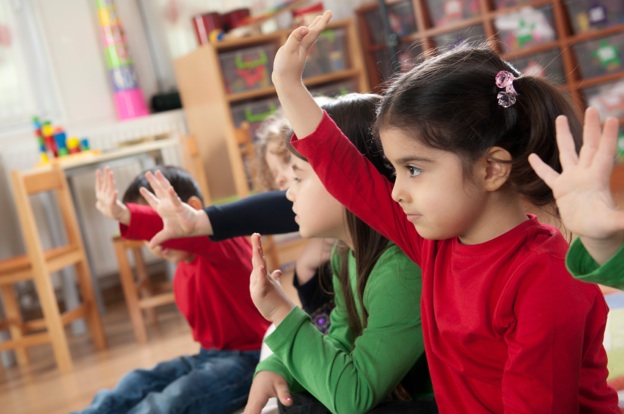SingaporeMotherhood | Baby & Toddler
June 2012
Do Babies And Toddlers Really Need Enrichment Classes?

Sending our children to enrichment classes and playschool before they’ve even learnt to walk or crawl is a trend that’s picking up here in Singapore. Are parents giving their kids a savvy and beneficial head start to development? Or is this just ‘kiasu’ parenting at its worst?
There is no doubt that babies and toddlers learn more about the world and themselves through social interaction and various external stimuli, gaining important new skills along the way.
In the early years, children experience a continual learning curve that forms the important foundations upon which they build the rest of their lives. So it is absolutely crucial that they are exposed to as much positive stimuli as possible so as to gain useful behavioural associations. These will stand them in good stead for further development during their school years and beyond.
[banner][/banner]
Can these skills be achieved without sending them to enrichment classes? “Of course,” assures Ms Frances Yeo, Principal Psychologist at Thomson Paediatric Centre’s The Child Development Centre which is affiliated to SBCC Baby & Child Clinic.
“Parents can provide enriching activities at home without sending the child to school. Everyday activities such as going to the shops, the zoo, playing at home, singing and dancing, reading to the child, having friends’ children come to the house – all these provide opportunities to develop a child’s language and skills,” she adds.
However, Ms Yeo also concedes, that this would be harder to achieve with both parents who are working, a situation that is more the rule than the exception in today’s society.
“So it is understandable that parents need to send their child to full-day childcare. Certainly it would be more enriching and stimulating for the child to attend school rather than staying at home with a helper and watching television all day,” she confirms.
Do Your Research Before Enrolling
Principal Director at the Julia Gabriel Centre in Singapore, Fiona Walker, thinks that parents should research the vast number of programmes offered in Singapore and make an informed decision based on their child’s needs.
“Parents should consider attending baby or toddler programmes as a form of enrichment for their child. They should enrol their child in such classes in the spirit of wanting to give the best to their child, rather than being ‘kiasu’ or getting pulled into the ‘rat race’.”
Fiona adds, “These early learning programmes should complement, not replace, quality parenting and secure caregiver-child bonding in the formative years. Furthermore, research indicates that early formal or informal learning exposure has immense value in a child’s development during the crucial window period where young children are most curious, teachable and impressionable.”
Melissa Gunadesa, Program Director at Colourful Hearts LLP, an early learning centre specialising in quality enrichment programs for children aged one to eight, including children with special needs, agrees.
“As long as the child is having fun while learning, why not? Learning must always be delivered in a fun manner to ensure interest, attention and full grasp of the learning concepts. Baby and toddler classes are also mostly parent-accompanied so this will provide an activity that creates bonding between mother and child.”
Benefits Of Enrichment Classes?
One important way in which young children can learn is through social interaction with other babies and toddlers their age, as well as with older children and of course, with adults. This is the main reason why Joy Wong sent her two-year-old son to playschool when he turned 18 months.
“Nigel is an only child, and hardly ever mixes with any peers, which I felt was not healthy for him. He looks forward to attending classes and seeing his friends, and is always in a happy mood after class. This is what I look for.”
Language development is another common benefit and motivation for parents to send their children to enrichment classes. Apart from his usual playgroup, Joy has also enrolled Nigel in a different enrichment centre for a weekly Mandarin.
“This is to provide him with exposure to Chinese in the hopes that the language is not completely lost on him, as we are a predominantly English speaking family. He now knows that ‘apple’ is also called ‘ping guo’!”
Ms Yeo brings up another point: “Children learn and explore their world through play, discovery and creativity. There is no rule in the book that says you must send your baby or toddler to school. However, toddlers do like messy play, songs, dance, pretend play and imitating adults.”
If parents and caregivers are unable to adequately cater to this kind of stimulation at home, enrichment classes will be helpful.
Interaction with peers and teachers in such classes can also help provide a check on a child’s developmental progress. Melissa says: “Early learning targets at a child during his formative years. During this crucial period, any deficits (termed ‘learning gaps’ at Colourful Hearts) that may arise are identified and addressed. If left unattended during these formative years, they can and will debilitate the child’s progress and abilities in school and later life. For this reason, we find early enrichment crucial.”
‘Enriched’ Kids Have A Stronger Chance Of Being Accepted Into A Good Preschool?
While it would be dismal to think that a three-year-old is judged for enrolment into preschool based on his or her Curriculum Vitae, some parents believe that more ‘prestigious’ preschools will look more favourably upon their child’s application if he or she had graduated from well-known enrichment centres.
In general, most preschools accept children on a first-come-first-served basis, or based on unique entry criteria such as priority to those with older siblings already in the school, says Fiona.
“However, exposure to positive, enriching and meaningful programmes will give the child a head start in terms of social skills (confidence, positive interaction, etc), technical skills (sense of music, aesthetic appreciation, etc) and EQ skills (empathy, social-mindedness, etc),” she asserts.
Still, there are preschools that conduct interviews to access whether a child will be able to integrate well with the school’s culture and environment. Melissa feels that in those situations, if a child had been previously enrolled in quality enrichment classes and developed positively as a result, that experience would definitely enhance his or her ability to shine in such interviews.
Are There Any Concerns Or Risks If A Child Is Sent To Classes Too Soon?
Nothing is definite, especially when our children are concerned. As Ms Yeo notes, “Every child is different. We are all born with different personalities, temperaments and abilities. Some children cope well with being separated from caregivers at an early age while others may not. Such children may experience separation anxiety and become clingy, have nightmares and may even regress in their behaviour.”
One solution is to enrol your child in classes where parental participation is involved. Alternatively, a secondary caregiver whom the child is comfortable with may be a suitable substitute. If neither is possible, then ensure that your child is in the best of hands by choosing enrichment classes where the staff is patient, nurturing and engaging.
What Should Parents Look Out For When Choosing An Enrichment Class For Their Child?
Given the slew of options out there, it can be confusing for parents who are trying to make the right choice. Fiona provides a useful checklist of what to look out for in an enrichment class or centre. It should:
• Provide a holistic, all-round physical-cognitive-emotional-social development of a child through the programme activities. These include art and craft, storytelling, singing and physical/outdoor play.
• Offer activities that are play-based, engaging, age-appropriate and meaningful. After all, children learn best when they are having fun and the learning is practical to them.
• Have teachers that are preferably early childhood trained and/or have the passion to work with young children. You can tell from the way the teachers engage with the children in a loving and respectful manner in class.
• Have a safe, hygenic and stimulating learning environment.
• Nurture life skills such as confidence, independence, an enquiring mind and being a team player.
All content from this article, including images, cannot be reproduced without credits or written permission from SingaporeMotherhood.
Follow us on Facebook, Instagram, and Telegram for the latest article and promotion updates.






